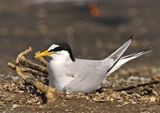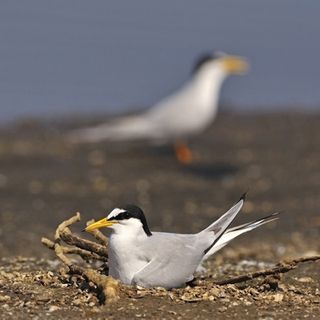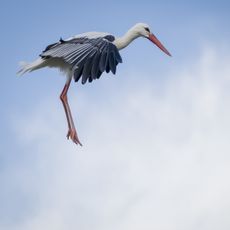Rare seabird under threat
Changing sea temperatures and weather patterns are affecting our little tern populations, the RSPB has warned


One of our rarest seabirds, the little tern, is under threat, the RSPB has warned. It's concerned that these elegant, diminutive birds- which return at this time of year from Africa to nest on beaches at fewer than 60 sites in the UK-are in real danger from changing sea temperatures and weather patterns.
Longstanding breeding colonies at South Gare, on the mouth of the River Tees on the Cleveland coast, and Donna Nook in Lincolnshire have disappeared due to habitat loss, predation and disturbance; only one nesting site remains in North Wales, at the Gronant dunes.

‘Little terns are very vulnerable to the impacts of climate change,' explains the RSPB's Susan Rendell- Read, who describes the dainty seabirds as being no heavier than a tennis ball. ‘They need undisturbed sand and shingle beaches to nest, with a plentiful supply of small fish just offshore. These beaches can be quickly altered by rising seas, making them unsuitable for nesting.'
A five-year partnership, including the RSPB, Natural England and the National Trust, has been set up to help our smallest tern in Wales by protecting and creating nest sites and raising awareness of their plight.
* Subscribe to Country Life and save
* Follow Country Life magazine on Twitter
Sign up for the Country Life Newsletter
Exquisite houses, the beauty of Nature, and how to get the most from your life, straight to your inbox.
-
 A well-connected rural playground with 23 acres on the edge of the South Downs National Park
A well-connected rural playground with 23 acres on the edge of the South Downs National ParkOld House Farm is an impressive family home with a wealth of amenities that would inspire any rural passion.
By Arabella Youens Published
-
 The UK gets its first ‘European stork village’ — and it's in West Sussex
The UK gets its first ‘European stork village’ — and it's in West SussexAlthough the mortality rate among white storks can be up to 90%, the future looks rosy for breeding pairs in southern England.
By Rosie Paterson Published
